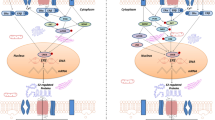Abstract
Neurophysiological manifestations of formation of the dependence on ethanol under stress conditions were studied in rats and their first generation offspring. In chronic experiments on 32 male rats, emotional stress was modeled (induction by nociceptive electrocutaneous stimulation), and an increased addiction to ethanol was formed. In these animals and in the first generation of their offspring (obtained from the above males and intact females), we studied emotional/motivational behavior, recorded the mass electrical activity from different brain structures, and measured the arterial pressure. In stressed rats, which acquired attraction to ethanol, negative emotional responses became transformed into positive, and behavioral and electrographic manifestations of the seizure activity developed. In the first generation offspring, the pattern of central rearrangements in the mechanisms of emotional/motivational behavior was to a great extent similar to that in parent rats.
Similar content being viewed by others
References
Z. N. Bolotova and Yu. A. Manui’lenko, “Prognostic value of some clinical/electrophysiological indices in aggraveted forms of alcoholism,”Nevropatol. Psikhiat.,17, 82–83 (1988).
M. G. Airapetyants,Influence of Alcohol Intoxication upon Progeny [in Russian], Nauka, Moscow (1989).
A. I. Maiskii, N. N. Vedernikova, V. V. Chistyakov, and V. V. Lakin,Biological Aspects of Drug Addictions [in Russian], Meditsina, Moscow (1982).
V. V. Geiko, “Neurophysiological mechanisms of the cardial activity control in offspring of rats genetically burdened by alcoholism,” in:Proceedings of the 9th Scientific Conference of the Central Research Dept. of the Tbilisi Institute of Advanced Medical Studies [in Russian], Metsniereba, Tbilisi (1989), p. 91.
R. I. Kruglikov and M. Ya. Maizelis,Alcoholism and Progeny [in Russian], Nauka, Moscow (1987).
E. N. Popova, “Influence of alcohol on offspring,”Zh. Nevropatol. Psykhiat.,83, No. 2, 115–126 (1983).
E. I. Khomenko and G. Kh. Bozhko, “Influence of ethanol on chromatin protein synthesis in the rat liver,”Ukr. Biokhim. Zh.,56, No. 2, 191–194 (1984).
L. V. Gladkova, “Neurobiological peculiarities of formation of emotional stress in offspring of rats burdened with emotional stress of their parents,”Abstr. of Cand. Thesis, Biol. Sci. [in Russian], Khar’kov (1992).
T. M. Vorob’yova, P. V. Voloshin, L. N. Paikova, et al.,Neurobiology of Pathological Attractions: Alcoholism, Toxin Addictions, and Drug Addictions [in Russian], Osnova, Khar’kov (1993).
V. I. Lebedeva, “Stages of mental adaptation under modified existence conditions,”Vopr. Psikhol.,44, 55–59 (1980).
Author information
Authors and Affiliations
Rights and permissions
About this article
Cite this article
Toumanova, V.V. Effects of stress and alcohol consumption on emotional/motivational behavior of rats and their first generation offspring. Neurophysiology 31, 32–34 (1999). https://doi.org/10.1007/BF02515008
Issue Date:
DOI: https://doi.org/10.1007/BF02515008




